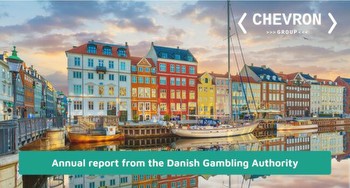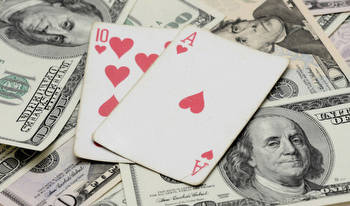How Danish Gambling Blocks Access to Unlicensed Online Casinos
Although online gambling has been around since the late 90s, online gambling laws are relatively new. In some European countries, online casinos are entirely banned. In contrast, other countries don’t allow offshore casinos from operating within the country.
CarolineGrogerssen is an expert in the iGaming field who specializes in the gambling industry in Denmark. She will discuss Danish gambling regulations. She’ll also explain how lawmakers block illegal gambling sites.
Why Are Online Casinos Becoming More Popular?
Since Covid 19 has forced governments worldwide to impose strict quarantine measures, people have spent more time indoors. Thus, the internet has been the most prominent form of entertainment. So, it’s not surprising that the online gambling industry gained more visitors.
Advanced mobile casino gaming software has made it easy for more people to have access to casino games. When playing casino games on mobile, punters can enjoy a similar experience playing games on a computer. Mobile games feature excellent graphics, sound and make it possible to play on the go.
Denmark’s Regulation on Gambling
In Denmark, online gambling is legal but can only operate under strict regulations. In 2012 Denmark passed a Gambling Act that brought the Danish Gambling Authority, Spillemyndigheden, into power.
Spillemyndigheden is responsible for licensing and regulating both land-based and online casinos. Since the establishment of the 2012 Gambling Act, the country has given licences to more than 50 national and international gambling sites.
Although gambling is considered legal in Denmark, there aren’t many land-based casinos in Denmark. Compared to the rest of Europe, Denmark has the least number of land-based casinos per person.
The same regulations on gambling apply to offshore operators, and getting a licence can be challenging. So, there aren’t too many offshore casinos that can operate legally in Denmark. Denmark’s Gaming Authorities also keeps a close watch on the industry and blocks any betting sites that operate without a Danish gambling licence.
This year, Spillemyndigheden managed to block 55 illegal gambling sites. In total, the regulators have blocked 145 sites since its establishment in 2012. So, what do the regulators do to prevent punters from visiting these sites? Here are some measures that the Danish Gambling Authorities take:
Reporting of Unlicensed Gambling Sites and Advertising
Spillemyndigheden encourages licensed casinos and gamblers to report illegal casino sites and operators. The same goes for advertisements of unlawful casinos.
When a citizen or a casino operator reports a suspicious site or advertisement, the regulators examine whether the reported casino has a valid licence or not. If the commission finds any irregularities, they’ll first notify the site of its illegal operation.
If the illegal casino doesn’t comply with the law, the Gaming Authorities open a court case. Once the regulators made their case, the Danish Government grants them permission to block the unlicensed casino.
Blocking Illegal Payment Methods
With strict gambling regulations in place, it comes as no surprise that the Danish Government imposed a Payment Act. The Payment Act states that licenced casinos must offer legalised payment provider services.
Gambling sites need to offer detailed information to inform their users of money laundering risks and other illegal activities. The Payment Act also requires gambling sites to report suspicious transactions from their users.
With strict regulations, the Danish Government ensures that players are protected from fraudulent casino sites. So, regulators block all payment methods that don’t meet the correct standards. Unfortunately, this means that Bitcoin isn’t accepted as a legal payment method.
Internet Blocking
After identifying an illegal or unlicensed casino, the Danish Gaming Authorities have the right to block the sites to ensure that Danish players can’t visit the sites.
Gaming regulators use a web crawling technique to monitor new gambling sites. They often use specific keywords to identify illicit sites. So far, gaming commissions have investigated more than 500 betting sites, as they check the database regularly. So, even if an unlicensed casino manages to slip through the cracks, there’s a good chance that the authorities will eventually spot it.
Conclusion
The Danish Government claims that it has implemented these strict regulations to ensure that its citizens are protected from unlicensed casinos and scam sites. So, to ensure that you are protected, it’s best to follow the rules.































